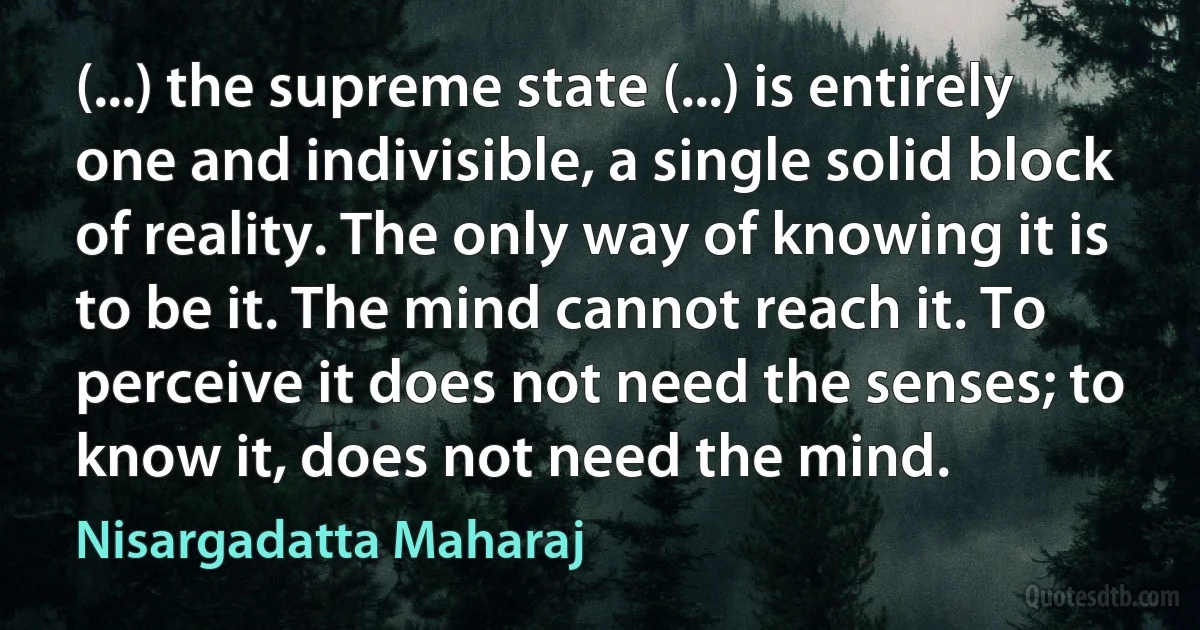Solid Quotes - page 7
I can say everything to you. It's a wonderful feeling. I never could tell Francoise that I don't really love her, that our marriage isn't based on any hones ideal. It's founded on my weariness and boredom. Although those are solid enough bases. Plenty of lasting marriages are build on them, God knows. At least, they're always present.

Françoise Sagan
...the [Whig] party, which has thought proper to proscribe me on account of a book [the Reflections] which I published on the Idea, that the principles of a new, republican, frenchified Whiggism was gaining ground in this Country. ... The party with which I acted had, by the malevolent and unthinking been reproached, and by the wise and good always esteemd and confided in-as an aristocratick Party. Such I always understood it to be in the true Sense of the word. I understood it to be a Party, in its composition and in its principles, connected with the solid, permanent long possessed property of the Country; a party, which, by a Temper derived from that Species of Property, and affording a security to it, was attached to the antient tried usages of the Kingdom, a party therefore essentially constructed upon a Ground plot of stability and independence; a party therefore equally removed from servile court compliances, and from popular levity, presumption, and precipitation.

Edmund Burke
Well, remember, all that area from which the Gore family comes was solid Democrat and progressive under Roosevelt for several decades. So they just didn't become Republicans because they all wanted to be bankers. They became it because they didn't like black people, and they thought the Democrats were pushing integration too fast. And that's how the great split came about, to the shame of the whole country.

Gore Vidal
His own infinity becomes zero in relation to that of the least fragment of the solid. He hardly exists at all. Trillions multiplies by trillions of trillions of such as he could not cross the frontier even of breadth, the idea which he came to guess at only because he felt himself bound by some mysterious power.

Aleister Crowley
Everything is subjective, but the real is objective. (...) It does not depend on memories and expectations, desires and fears, likes and dislikes. All is seen as it is. (...) It is solid, steady, changeless, beginningless and endless, ever new, ever fresh. (...) Desirelessness and fearlessness will take you there.

Nisargadatta Maharaj
There are the two – the person and the witness, the observer. When you see them as one, and go beyond, you are in the supreme state. It is not perceivable, because it is what makes perception possible. It is beyond being and not being. It is neither the mirror nor the image in the mirror. It is what is – the timeless reality, unbelievably hard and solid.

Nisargadatta Maharaj
We see sad scenes by the wayside, small and wretched hovels in quarries and nooks of the roads in which some wretched family finds shelter. The children leave an impression of misery on the mind which can never be effaced. Houses unroofed and lands waste and de-populated, are the memorials of the frightful calamities through which the country has passed. The proprietors are nearly all bankrupt, great numbers of the farmers are gone away, thousands of the peasantry are in the work-houses or in their graves. I believe we can form no fair idea of what has passed in these districts within the last four years, and I see no great prospect of a solid improvement. Here we have in perfection the fruits of aristocratic and territorial usurpation and privileges.

John Bright
It has been maintained, that Agriculture is, not only, the most productive, but the only productive species of industry. The reality of this suggestion in either aspect, has, however, not been verified by any accurate detail of facts and calculations; and the general arguments, which are adduced to prove it, are rather subtil and paradoxical, than solid or convincing.

Alexander Hamilton
We are now forming a republican government. Real liberty is neither found in despotism or the extremes of democracy, but in moderate governments. Those who mean to form a solid republican government, ought to proceed to the confinges of another government. As long as offices are open to all men, and no constitutional rank is established, it is pure republicanism. But if we incline too much to democracy, we shall soon shoot into a monarchy.

Alexander Hamilton
Acting requires so much delving into yourself and exposing yourself, so it's sensible to be wondering, Do I still want to be doing this? But I enjoy the work, and everything is so solid at home. I don't care if they say I've had buttock implants. Or not. I don't care. Go ahead! That's the nice thing about getting to the age I am. I could have said I didn't care before -- but secretly I did. And now I really don't.

Kate Beckinsale
The recurrent problem of civilization is to define the male role satisfactorily enough ... so that the male may in the course of his life reach a solid sense of irreversible achievement, of which his childhood knowledge of the satisfactions of child-bearing have given him a glimpse. In the case of women, it is only necessary that they be permitted by the given social arrangements to fulfil their biological role, to attain this sense of irreversible achievement. If women are to be restless and questing, even in the face of child-bearing, they must be made so through education.... Each culture--in its own way--has developed forms that will make men satisfied in their constructive activities without distorting their sure sense of their masculinity. Fewer cultures have yet found ways in which to give women a divine discontent that will demand other satisfactions than those of child-bearing.

Margaret Mead
I'll make my report as if I told a story, for I was taught as a child on my homeworld that Truth is a matter of the imagination. The soundest fact may fail or prevail in the style of its telling: like that singular organic jewel of our seas, which grows brighter as one woman wears it and, worn by another, dulls and goes to dust. Facts are no more solid, coherent, round, and real than pearls are. But both are sensitive.

Ursula K. Le Guin
[Imlac continues] "It was never supposed that cogitation is inherent in matter, or that every particle is a thinking being. Yet, if any part of matter be devoid of thought, what part can we suppose to think? Matter can differ from matter only in form, density, bulk, motion, and direction of motion: to which of these, however varied or combined, can consciousness be annexed? To be round or square, to be solid or fluid, to be great or little, to be moved slowly or swiftly one way or another, are modes of material existence, all equally alien from the nature of cogitation. If matter be once without thought, it can only be made to think by some new modification, but all the modifications which it can admit are equally unconnected with cogitative powers."

Samuel Johnson
Water does not resist. Water flows. When you plunge your hand into it, all you feel is a caress. Water is not a solid wall, it will not stop you. But water always goes where it wants to go, and nothing in the end can stand against it. Water is patient. Dripping water wears away a stone. Remember that, my child. Remember you are half water. If you can't go through an obstacle, go around it. Water does.

Margaret Atwood



